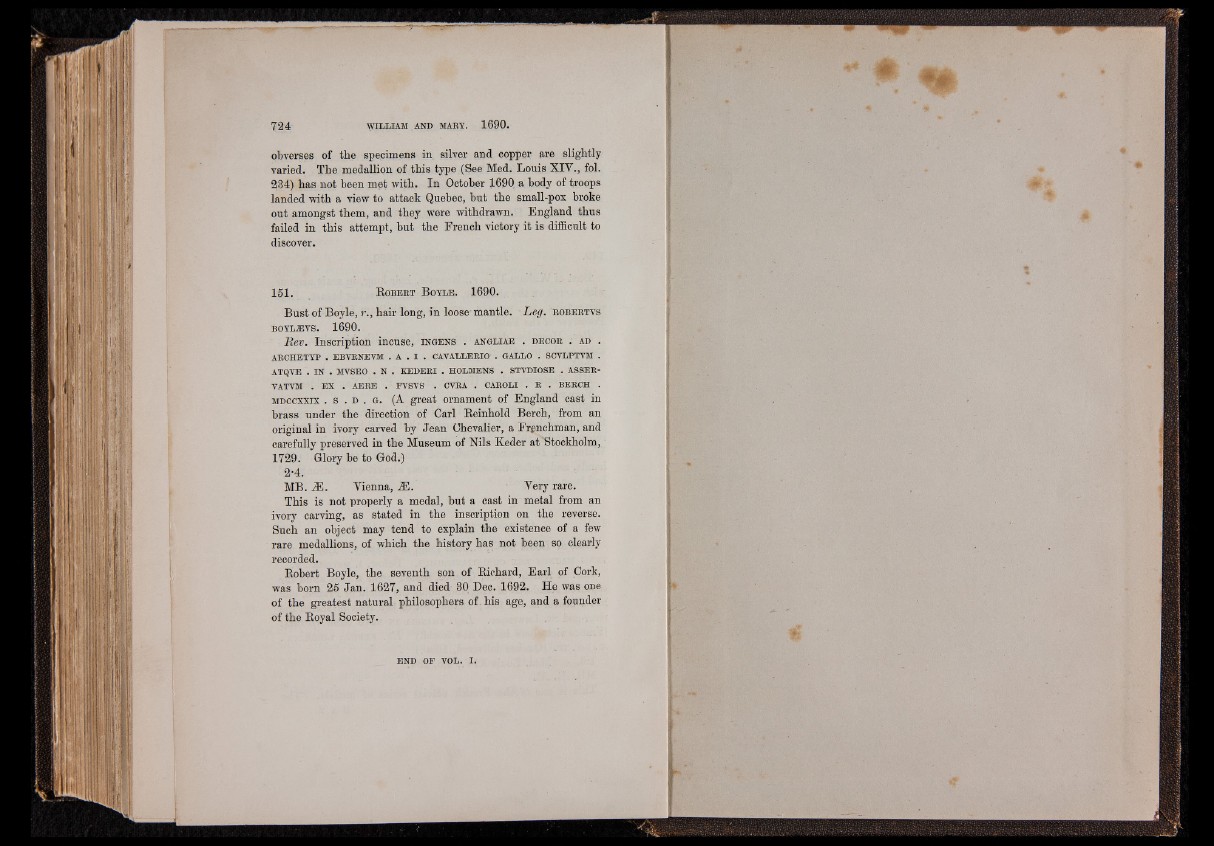
WILLIAM AND MAEY. 1690.
obverses of the specimens in silver and copper are slightly
varied. The medallion of this type (See Med. Louis XIV., fol.
234) has not been met with. In October 1690 a body of troops
landed with a view to attack Quebec, but the small-pox broke
out amongst them, and they were withdrawn. England thus
failed in this attempt, but the French victory it is difficult to
discover.
151. R o b e b t B o y l e . 1690.
Bust of Boyle, i P hair long, in loose mantle. Leg. e o b e e t v s
BOYLiEVS. 1690.
Rev. Inscription incuse, in g e n s . a n g l ia e . d e c o e . a d .
ABCHETYP . EBVENEVM . A . I . CAVALLEEIO . GALLO . SCVLPTVM .
ATQVE . IN . MVSEO . N . KEDEBI . HOLMENS . STVDIOSE . ASSEE-
VATVM . EX . AEEE . FVSVS . CVBA . CAEOLI . E . BEECH .
m d c c x x ix . s . d . g . (A great ornament of England cast in
brass under the direction of Carl Reinhold Berch, from an
original in ivory carved by Jean Chevalier, a Frenchman, and
carefully preserved in the Museum of Nils Keder at Stockholm,
1729. Glory be to God.)
2-4.
MB. 2E. Vienna, M. ' Very rare.
This is not properly a medal, but a cast in metal from an
ivory carving, as stated in the inscription on the reverse.
Such an object may tend to explain the existence of a few
rare medallions, of which the history has not been so clearly
recorded.
Robert Boyle, the seventh son of Richard, Earl of Cork,
was born 25 Jan. 1627, and died 30 Dec. 1692. He was one
of the greatest natural philosophers of. his age, and a founder
of the Royal Society.
END OF VOL. I .